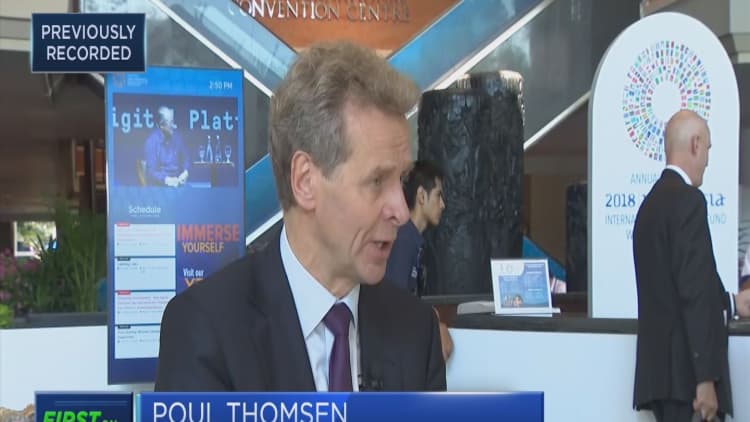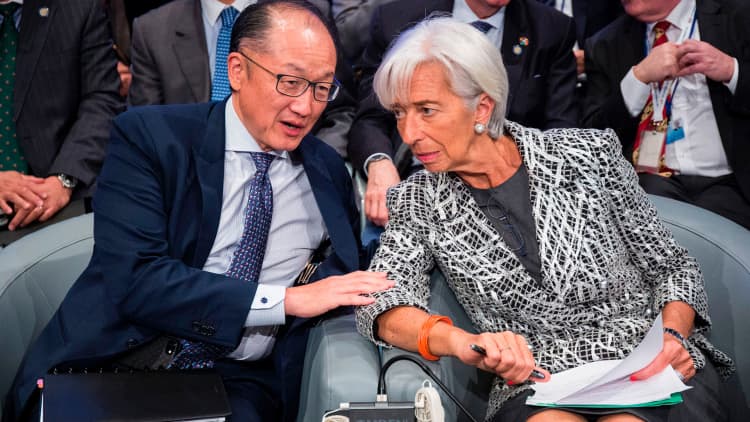The International Monetary Fund (IMF) has one clear message for the Italian government: this is not the time to increase your spending bill.
In an interview with CNBC Friday, Poul Thomsen, the IMF's Europe Department chief, said at this stage of the economic cycle, Italy "should take more advantage of the situation to bring down debt."
The Italian government's decision to increase public spending in 2019 has raised concerns in Brussels and in financial markets. Italian stocks and government debt have been hit by these concerns, with investors worried that the extra spending will become a problem in the future due to Rome's massive debt pile.
"Italy needs to consolidate at this point of the cycle and not to relax, as the (budget) plans would entail," Thomsen told CNBC's Geoff Cutmore.

"You can see on the market reaction (that) it's a concern of markets ... We do think Italy at this stage need to undertake fiscal consolidation and not relaxation," Thomsen added.
Luigi di Maio, Italy's deputy prime minister, said Thursday that the government will approve the 2019 budget plan on Monday and then send it to the European Commission and the Italian Parliament.
The anti-establishment government in Italy is aiming to support the economy by setting a financial buffer for investments. However, some analysts have raised concerns that the government's growth forecasts are too optimistic and the extra spending could derail the reduction of public debt.
Italy's public debt represents 130 percent of its gross domestic product and totals 2.3 trillion euros ($2.6 trillion).

Meanwhile, Lorenzo Bini Smaghi, chairman of Societe Generale, told CNBC's Nancy Hungerford Friday that the market reaction has been focused on Italy and there has been no contagion to other European countries.
However, he warned that there could be risks for Italian banks.
"I am more concerned about the fact that higher interest rates in the end affect the profitability of the Italian banking system and this may lead the Italian banks to stop lending to the Italian economy," Smaghi said, adding that this could dent economic growth in the country.


